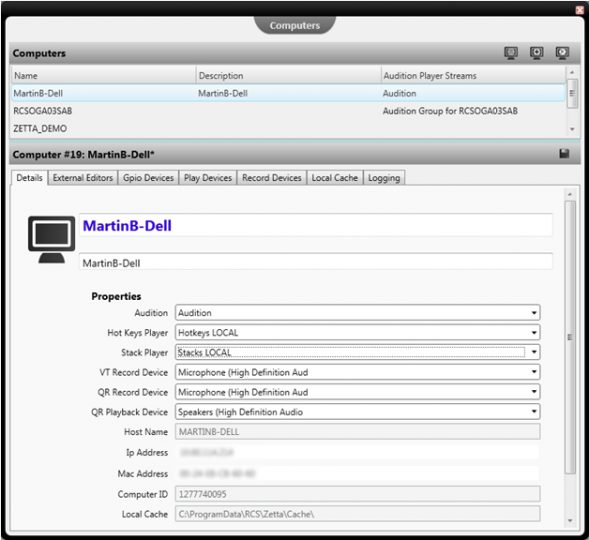I would like to share a few things about Zetta that are my personal favorites. These maybe “back-end” and not immediately visible, but they are unique aspects of the system when used in the real studio environment. Users will immediately appreciate them.
One of the common problems of most legacy systems is stale data. Manual (or inefficient) periodic refreshes are often required to get the latest version of Logs, Library, Hot Keys, etc. One of the popular RCS innovations (almost two decades ago) was a feature called the Living Log. Introduced with Master Control V14, the Living Log was a service assuring all schedule-related components, primarily Log Editor and Sequencer, ALWAYS showed the same, up-to-date log. With a strong feature like this, problems such as manual conflict resolution or periodic reconciliation no longer existed – there was always just one log, so no more “last one wins” model. It is very critical for operation of any station that there be no ambiguity as to whether the control room has the latest version of the log.
In Zetta, we have expanded the Living Log. It’s almost like we have Living Everything! When Zetta’s life began 6 years ago, the initial work focused on the back-end architecture and what we call the Transport Layer. It keeps track of all machines running on the Zetta network, tracks user interface components and controls other Zetta services that operate on your machines. With this knowledge, the Transport Layer can immediately distribute change notifications to every single piece of the system; every time an action takes place. Log tweaks will be immediately visible to all users, as well as changes in Library, Hot Keys, Stacks, On-Air Sequencer and Voice Tracker are automatically propagated. The Transport Layer is smart; it does not push “everything, everywhere”, which would be inefficient, especially for large sites. It “knows” what and where information needs to travel and delivers the goods quickly.
Apart from the “living” aspect of the system, another requirement was to make sure the system was multi-station from Day One. No tweaks or hacks are needed to make a single station system handle multiple logs. This full-blown implementation can handle many, many stations. One of our clients operates Zetta with more than 100 stations. One of the great things about our multi-station system is that it is very simple to set up and maintain. You can provide a user with specific user rights, with literally, a click of a mouse. Give each user the proper rights to access any station’s Logs, Library, Hot Keys and so on. And speaking of user rights, that is another benefit of the Zetta multi-station system; although your site may operate many stations, you can manage privileges from one place.
Did I say “from one place”? Well, that’s true. You longer have to store duplicate information in many databases like individual machine configurations (20 computers in 20 INI files). Everything we do goes into one database. If you take a DB backup, you can be certain that you will have not only your logs, library assets, Hot Key banks, and users / user rights, but also store all computer configurations down to a single audio card assignment on that old machine in the corner. We have it all. With your backup (and a copy of your audio storage of course), you can easily restore your environment to a happy state if anything went south. But that is not the only benefit; you can configure ANY setting of the system from ANY machine.

I could go on but I am being told to keep some room for my other RCS colleagues. Check out Zetta – there is A LOT to love – I guarantee that.